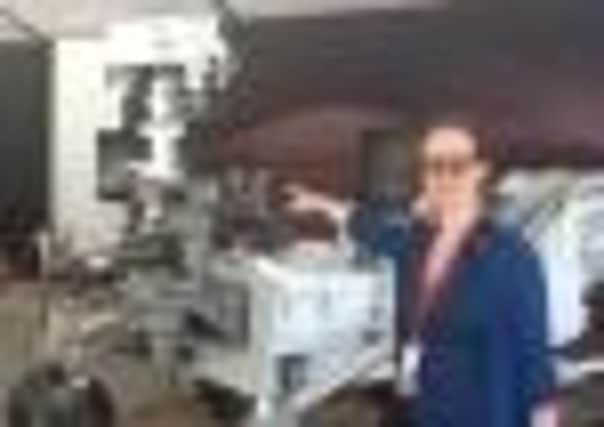Curiosity sees Penicuik-born scientist join the search for life on Mars


Among those celebrating the successful landing of the Nasa vehicle Curiosity on Monday was Penicuik-born scientist Victoria Hipkin.
After waiting for the robot to make its journey of almost 355 million miles she is now set to take a central role in its work.
Advertisement
Hide AdAdvertisement
Hide AdVictoria, 40, who now lives in Montreal, is the senior programme scientist for planetary exploration at the Canadian Space Agency and a member of the team overseeing the Mars Science Laboratory.
She is responsible for a Canadian instrument designed to monitor the chemistry of rocks and soil as the rover travels across the Martian surface.
Her father, Richard, who still lives in Penicuik, said she had barely had time to celebrate since the landing.
“She’s involved in the control room in Pasedena and is extremely busy,” he said.
“I expect we’ll hear from her within the next few days or so. After the landing of the Phoenix mission in 2008 it was a week before she had any time at all for social things.”
Victoria grew up in the Deanburn area of Penicuik and attended Cuiken Primary School and Penicuik High. She studied physics at Edinburgh University and gained a PhD in meteorology at Leeds University.
After research posts in New Zealand, the Falkland Islands and Toronto, her work on instruments to measure atmospheric chemistry then took her to the Canadian Space Agency in Montreal.
In June 2010, she won the Exceptional Public Service Medal, Nasa’s second-highest medal for scientific achievement, for her contributions to the Phoenix mission.
Advertisement
Hide AdAdvertisement
Hide AdSpeaking in the lead-up to landing, Victoria said: “I’m feeling a lot of anticipation and a lot of nervousness as well.
“All of that nervousness is about the whole landing sequence. The first time I saw it I thought: ‘This is really amazing. How can something that complex really work?’”
Her nerves were unfounded, however, as after completing its nine-month journey, the rover landed safely.
Her father watched the launch from Kennedy Space Centre in Florida, along with her mother, Ulla, and younger sister Sarah.
Mr Hipkin said: “That was a fantastic experience, being given VIP badges and shown around several of the launch facilities. We sat in the grandstand and, because the rocket is essentially a bomb, we had to sit three kilometres away from the launch pad.”
Now that it’s safely on Mars, Curiosity will analyse frozen water usually hidden under deep layers of rock that have been exposed in the walls of a huge crater. Scientists are hoping to find signs of liquid water on the surface of Mars in the past and evidence for the evolution of primitive life-forms.
Two labs within the rover can analyse rocks that have been split by a razor and beam the results back to Earth.
Mr Hipkin added: “We are so proud of Victoria. And she’ll be pleased to see her work being given local coverage, as inspiring young people to get involved with science is very important to her.”